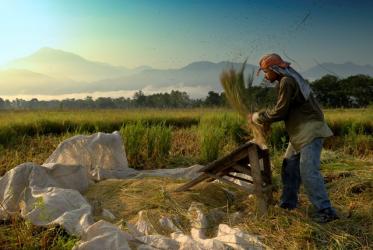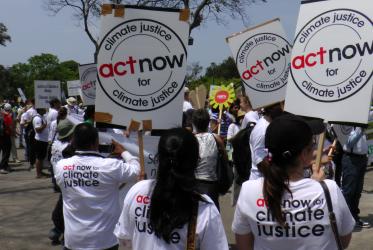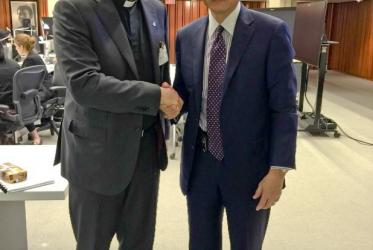Displaying 261 - 280 of 325
09 December 2015
Interfaith workshop calls for justice and compassion in finance
03 December 2015
UN Climate summit results vital for world’s future
26 November 2015
Land rights focus of panel discussion
17 November 2015
No place for hunger in a world of abundance
02 October 2015
WCC dedicates prayer service to Sustainable Development Goals
23 September 2015
Everyone urged to join Zero Hunger Challenge
29 June 2015
WCC considers AIDS report a “valuable tool”
26 June 2015
Churches' “prophetic voice” will be busy in 2015
18 June 2015
The Berlin Wall: looking back, looking forward
07 November 2014










